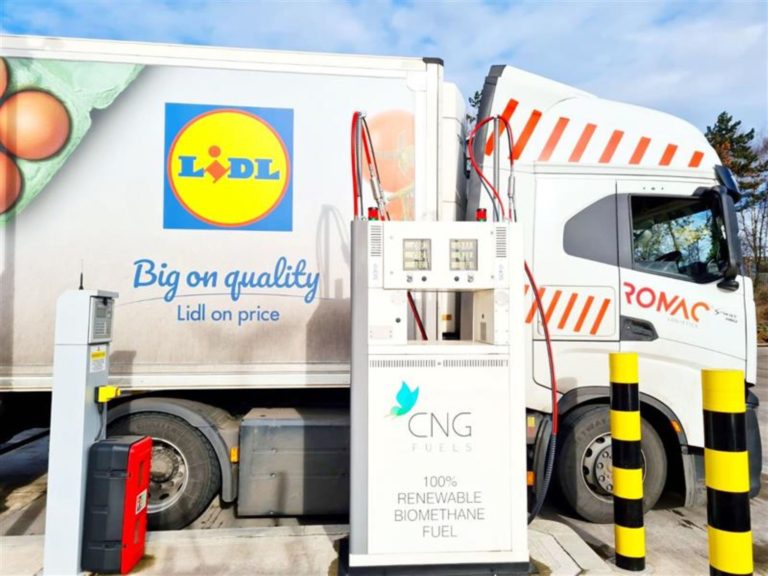
Helping fleets to reduce emissions
The site in South Yorkshire – one of the country’s largest logistic hubs – puts 90% of the UK’s population and four of the country’s largest ports within a 4–5-hour reach of the station. With 76% of all intermodal journeys involving HGVs beginning or ending at a shipping dock, the new station will play a fundamental role in enabling major fleets to cut emissions by over 90% when compared to diesel.
The UK’s largest port by tonnage, Immingham Docks, sits within an hour’s range of the new station, enabling fleets travelling to and from the port to run on 100% renewable biomethane for the first time. Additionally, the site will serve iPort, the UK’s most advanced multimodal logistics hub.
The new station will host 12 refuelling pumps, capable of refuelling more than 500 HGVs daily. At capacity, this would cut 60,000 tonnes of CO2 every year.
Philip Fjeld, CEO & Co-Founder of ReFuels, said: “Fleets around the country are under significant pressure to slash emissions and today, there’s only one viable option – 100% renewable biomethane. Our latest site to enter construction in Doncaster, is set to transform access to Bio-CNG for fleets travelling to and from the UK’s largest ports.
“As a key logistics hub in the UK, the Doncaster station will not only expand the reach of low-carbon deliveries for our existing customers, including the likes of Amazon, DHL, and Lidl, but many more major brands and local hauliers looking to make substantial emission cuts of over 90% from fleets. And we’re not stopping here – ReFuels is continuing to open and build new stations up and down the country, to cater to the soaring demand for low-carbon fuel.”
The station is a joint venture between CNG Fuels, the infrastructure arm of ReFuels, and sustainability-led investment management company, Foresight Group.
Tackling HGV emissions – a major piece in the net zero jigsaw
Transportation is the UK’s largest CO2 emitting sector, responsible for 34% of the country’s total emissions. HGVs alone account for around 18% of the sectors emissions, making it a core focus for meeting the UK’s net zero by 2050 goal.
Renewable biomethane – derived from food waste and manure – is the lowest carbon, most cost-effective alternative fuel to diesel available to HGVs today, cutting emissions by over 90% whilst providing up to 40% lifetime fuel cost savings.
As the UK Government sets out to ban the sale of new diesel and petrol heavy goods vehicles by 2040, fleet operators are under growing pressure to seek alternative solutions that will enable major emission cuts. Such pressure is reflected in the soaring demand for Bio-CNG from fleet operators. In July 2023 alone, ReFuels saw an 80% increase in fuel dispensed compared to the same period in the previous year.
Expansion plans
The company has major plans to expand its network of renewable biomethane refuelling stations across the UK to meet the growing demand for low-carbon, renewable Bio-CNG. By 2026, ReFuels plans to open between 30-40 new stations, with a total capacity to refuel 15,000 HGVs daily, and dispense more than 600,000 tonnes of renewable biomethane every year – equivalent to cutting the UK’s HGV emissions by 8%.
The company is also preparing for future technologies, with plans to host hydrogen trials across its sites, to ensure the infrastructure is readily available to cater to new technologies when they come commercially viable. CNG Fuels – ReFuels’ infrastructure arm – is already working alongside industry to deliver the largest hydrogen mobility corridor in the UK.
The group has one more station under construction in Aylesford in Southeast England and expects another station to commence construction during the financial reporting year ending 31 March 2024.